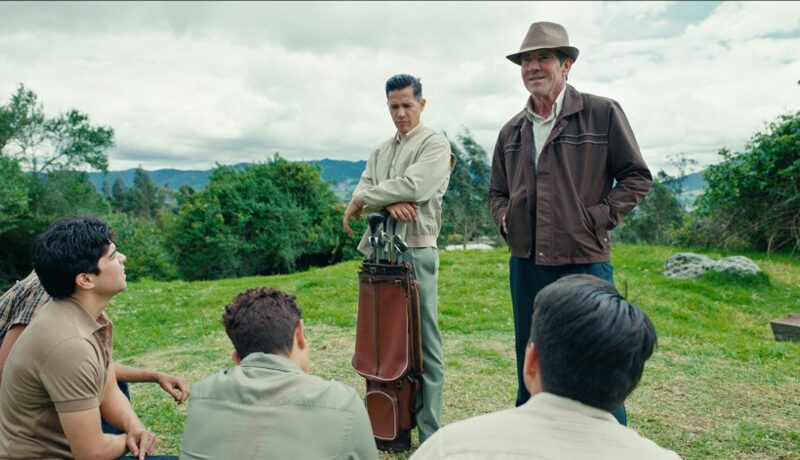The Long Game (Quintana, 2024)
The Long Game is like a large balloon tethered to the earth by a long but strong rope. It flies high enough, and it occasionally pulls against the constraints keeping it from going higher or farther afield. You enjoy the view, and maybe you wonder what could be if it ever broke free.
Such is the devil’s bargain of sports flicks. The formula is tried and true, and hardly risks failure. But the same traits that make it dependable also make it predictable and unexceptional. Sometimes, if we are lucky, we get a movie that breaks free of the conventions and becomes riskier, edgier, and more daring. More often, though, we get glimpses of that film that might have been lurking around the edges of an all-too-familiar package. In golf terms, The Long Game never grips it and rips it. It opts for a shorter, more controlled drive to stay in the fairway. It avoids the traps that could lead to failure, but in doing so, it never really gives itself a chance to excel. It plays for par.
The story is about a high school golf team comprised of Mexican Americans. The players and their coach have grown up in a world of inequality and racism. They might, perhaps, feel the sting of daily hypocrisies a bit more bitterly that they come from those claiming to represent and love a game that preaches honor, integrity, and sportsmanship. The conventional, formulaic part of the film leans heavily on the fact that sports, while not a pure meritocracy, is still one of the most bracingly honest measuring sticks. To quote Bill Parcells, “You are what your record says you are.” In such narratives, the battle is to get the opponent on the field or course or court, where institutional advantages can tilt the odds one way but cannot be finally determinative. Once the team is allowed to play, their sheer talent is enough to overcome all the ways that the powerful and privileged try to rig the rules in their favor.
The more serious and thoughtful firm lurking at the edges is not about the competition itself but all the compromises the players and coach must make to get into the competition in the first place. Is it necessary to swallow your pride, pander to and placate the powerful, at least temporarily, in order to position oneself for long-term benefits? This is not a new question either — we are used to seeing it as a frame for African Americans dealing with racism or women dealing with patriarchy. In feminist criticism, it is called wearing a “mask of acquiescence.” My biggest disappointment with the film is that this theme gets very, very muddled. For most of it, the coach is an advocate for asking and waiting and assuming that eventually the rich and racist will learn the errors of their way and recognize and reward excellence. But then he appears to change his mind and understand that there are some lines that you cannot allow to be crossed. How can you expect others to respect you if you don’t respect yourself? How likely is it that the unjust will repent if they are never called to do so? This muddiness doesn’t wreck the film, but it makes it a lot harder to know how to feel about the success because, thematically, I don’t know what it signifies other than that they were better at golf.
Don’t get me wrong, there is a generic pleasure in watching underdogs rise to a challenge and seeing hypocrites get their comeuppance. I enjoyed The Long Game, but just at it ensured I will never have to think about The Boys in the Boat ever again, it will probably fade from memory the minute the next underdog sports film is released.

